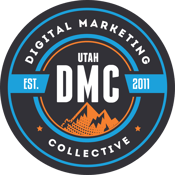 Rick Galan spoke to a crowded room about what he says is “universally terribly done”--reports. His presentation, titled “Measuring What Matters, Building Effective and Efficient Reporting” focused on the purpose of reports and how reports can be improved. Rick, Director of Digital Marketing at Blendtec, chose to talk about reporting because it “is a transferable skill between roles, jobs or even careers,” and pointed out that reporting is 100% about relationships.
Rick Galan spoke to a crowded room about what he says is “universally terribly done”--reports. His presentation, titled “Measuring What Matters, Building Effective and Efficient Reporting” focused on the purpose of reports and how reports can be improved. Rick, Director of Digital Marketing at Blendtec, chose to talk about reporting because it “is a transferable skill between roles, jobs or even careers,” and pointed out that reporting is 100% about relationships.
Self-Report
Rick recommends reporting to ourselves by building regular and structured reporting to review and evaluate performance. These reports don’t need to be as detailed or polished as other reports, but they serve the same purpose--helping to track success and identifying areas to improve. To get that information you should establish your own baselines and measures that you use to monitor performance of your programs. Rick suggests asking questions to self-report: What actions do I need to take to make my programs successful? How can I measure how efficient those actions are? What do I need to monitor to make sure my programs are running to plan? An important concept that Rick said everyone needs to understand is that “your job is not what you do; your job is the results of what you do.” He added that, “no one hires someone to do keyword research, they hire them to get results.” It is through self-reporting that we are able to understand our achieved results and communicate them more clearly.
Maintain the Relationship
Because reporting is %100 about relationships, the relationship between you and your boss is up to you to maintain. During his presentation, Rick offered 3 keys to maintaining any healthy working relationship: 1. Mutual benefit- you have to provide value to each other. 2. Ownership-lines between who is responsible for what need to be drawn. 3. Process-the way you work together needs to be defined-measures in place. Rick stressed the importance of clearly defining what matters most to those you report to. “The metrics you THINK matter, don’t. What matters is what matters to your boss,” he said. In order to figure out what matters to them Rick identified few things everyone should do. Discuss their goals, look for the KPIs that already exist. Talk to other direct reports and managers. Look for sacred cows-things that are untouchable. Build a theory on what they want to see and then communicate that back to them. Use terms of mutual benefit- “here’s how this benefits you and here’s how it benefits me”
Build a report like you are building a product
An effective report accomplishes goals, just like a product. To illustrate the similarities in the process of building a product and creating a report Rick used Jesse James Garrett’s The Elements of User Experience model. The five steps
- Strategy- What do we want to get out of this [report]? What do [those I report to] want?
- Scope- What features will the [report] need to include?
- Structure- How will the pieces of the [report] fit together and behave?
- Skeleton- What components will enable people to use the [report]?
- Surface- What will the finished [report] look like?
Just like products, an effective report is one that accomplishes goals.
“You have to make every single detail perfect, and you have to limit the number of details…if you are paying attention to the smallest things, while knowing what’s important, then everything else takes care of itself.” –Twitter Cofounder said Jack Dorsey
As a final note about reporting, Rick recommends when you report, you should “Be prepared to answer ‘Why?’ up to 5 times on any dataset you send.’ Always include commentary and content is essential because your value lies in how you analyze and show your value--anyone can send numbers, when you report it is your job to communicate what the numbers mean?
